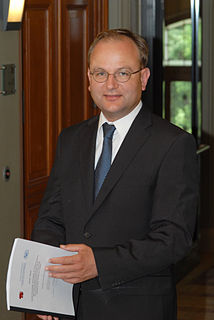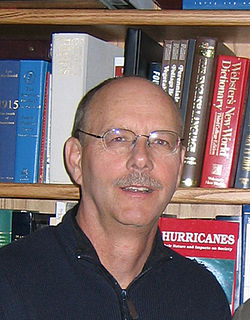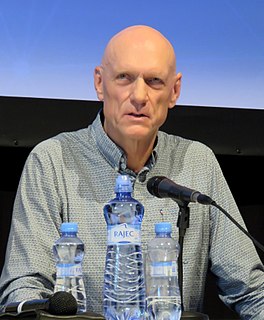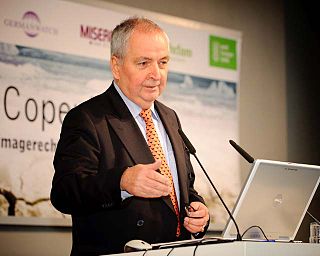A Quote by Ottmar Edenhofer
Climate policy has almost nothing to do anymore with environmental protection, says the German economist and IPCC official Ottmar Edenhofer. The next world climate summit in Cancun is actually an economy summit during which the distribution of the worlds resources will be negotiated.
Related Quotes
First of all, developed countries have basically expropriated the atmosphere of the world community. But one must say clearly that we redistribute de facto the world's wealth by climate policy. Obviously, the owners of coal and oil will not be enthusiastic about this. One has to free oneself from the illusion that international climate policy is environmental policy. This has almost nothing to do with environmental policy anymore.
We now know that climate action does not require economic sacrifice. This is fully in line with the World Bank Group's findings. It is up to all of us to make smart policy choices that will help combat climate change. For example, putting a price on carbon is a necessary step and could drive resources and investments to a cleaner economy.
Climate scientists think of nothing but climate and then express their concerns in terms of constructs such as global mean surface temperature. But we live in a world in which all sorts of change is happening all the time, and the only way to understand what climate change will bring is to tell stories about how it manifests in people's lives.
The same individuals who are doing primary research in the role of humans on the climate system are then permitted to lead the [IPCC] assessment! There should be an outcry on this obvious conflict of interest, but to date either few recognize this conflict, or see that since the recommendations of the IPCC fit their policy and political agenda, they chose to ignore this conflict. In either case, scientific rigor has been sacrificed and poor policy and political decisions will inevitably follow.
But no matter how big the effort to push a propaganda line might be, climate change is bigger. This, undoubtedly and regrettably, is the biggest immediate long-term environmental challenge we face. A failure to concretely come to some policy outcome on climate change has not only a negative environmental impact but also social and economic consequences for us.
Every climate scientist has his or her own views on some issues that differ from the mainstream in detail. But the broad findings of the IPCC (Intergovernmental Panel on Climate Change) have general support amongst scientists with relevant specialist expertise. The broad wisdom of the IPCC is strongly contested by a small number, and a small minority, of reputed climate scientists. It is not contested by the large majority of specialists, and by the leaders of the relevant learned academies in the countries of great scientific accomplishment.
In a world where millions of human beings live in extreme poverty, die of malnutrition and lack medical care, where pandemics continue to kill, it is imperative to pursue good faith disarmament negotiations and to shift budgets away from weapons production, war-mongering, surveillance of private persons and devote available resources to address global challenges including humanitarian relief, environmental protection, climate change mitigation and adaptation, prevention of pandemics, and the development of a green economy.
We raised the matter of an agreement that was reached at the Growth and Development Summit, which was that we should access a certain part, 5% was mentioned, of the funds in the hands of the institutional investors, domestically, for investment in the real economy. That being an agreement of the Growth and Development Summit, we will engage South African business to see how we can make that a practical thing. So, there is a different set of engagement with local business.
Over the past eight years, the United States has worked hard to deepen partnerships across the region and across South-east Asia in particular. We're now a part of the East Asia Summit and we have a strategic partnership with Asean. At the US-Asean Leaders Summit I hosted earlier this year in Sunnylands, California, we agreed to a set of principles that will shape the future peace and prosperity of the region, from promoting innovation and furthering economic integration to addressing transnational challenges like global health security and climate change.
The IPCC (Intergovernmental Panel on Climate Change, a group of more than 2,500 scientists) has provided the world community with first class assessments of the soaring temperatures the world is facing, the devastating impacts of these rises and the ways in which we can try and avoid the worst effects of global warming. We now know climate change is real and the hand of humankind in this warming is becoming clearer and clearer.
































